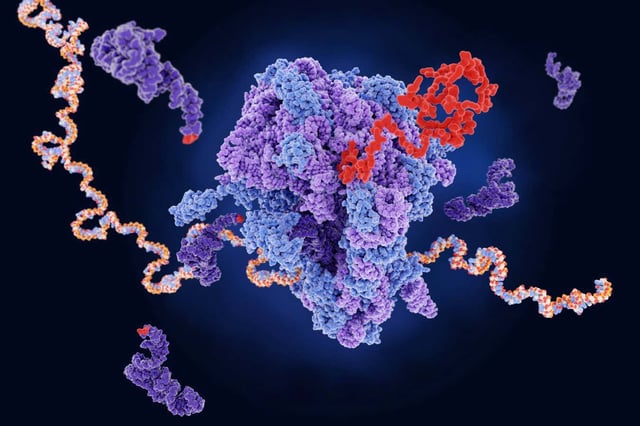Overview
- Ribosome profiling of aging killifish brains shows pronounced stalling at arginine and lysine codons, halting translation elongation and triggering proteostasis collapse.
- Basic amino acid–rich proteins that bind DNA and RNA are most affected by these stalls, undermining key processes such as RNA splicing and DNA repair.
- Stalling on mRNAs encoding ribosomal proteins creates a feedback loop that reduces ribosome biogenesis and further decreases overall protein synthesis.
- Translation elongation defects drive protein-transcript decoupling and increase the risk of protein aggregation, linking molecular stalls to broader aging hallmarks.
- Ongoing research is assessing whether similar translation errors occur in human neurons and testing experimental inhibitors of the inflammation pathway activated by stalled ribosomes to protect cognitive function.

